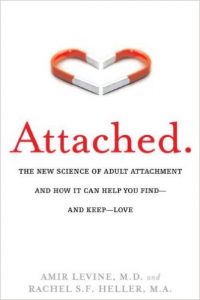Repair and Repeat
April 14, 2016Enmeshment: The Opposite of Abuse and Neglect (but still unhealthy).
May 17, 2016Attachment: Not Just For Babies!
Sometimes, when I teach Attachment Theory to the juveniles I work with, I imagine them zoning out because they don’t have children (although, some do), so they assume it’s not relevant to them. The thing is, Attachment Theory is relevant to everyone – we all have relationships; romantic ones,familial ones and friendships .
Yes, we establish our Attachment Styles as infants and toddlers, but researchers say that our Attachment Styles tend to remain the same throughout our lives
which means that if we form an insecure-avoidant Attachment Style as a toddler,the behaviors and traits associated with that style will be brought into our adult relationships too.

Most us want to love and be loved – that’s why the dating industry is a billion dollar one, yet relationships rarely run smoothly and that’s often down to our Attachment Styles. In order to have our healthiest and most satisfying relationships, it is imperative that we are able to identify our own Attachment Styles. For example, if you are a person with a Secure Attachment Style then you probably feel comfortable with being close to, and open with your partner, but if you are dating someone with an Insecure-Avoidant Style – a person who keeps others at a distance and who tends to be dismissive – then it’s going to be tricky because the secure person is likely to start to feel insecure about the relationship due to the aloof nature that is typical of his/her avoidant partner.
We’ve all had that “crazy” ex – the one who keys your car or texts you constantly when you’re out with your friends and don’t respond to his/her texts quickly enough? Those are what Attachment Theorists call “protest behaviors” – behaviors intended to re-establish closeness or get his/her partner’s attention (clearly, it doesn’t matter what kind of attention as long as they are getting it).
The good news is that, with awareness of our Attachment Styles, we can work on them (alone or with a therapist) to help us have incredible relationships. This book explains clearly and concisely how Attachment Theory influences your romantic relationships and also has a quiz to help you determine your own attachment style.

Attached: The New Science of Adult Attachment and How It Can Help You Find – and Keep – Love
Click here to buy this book…
